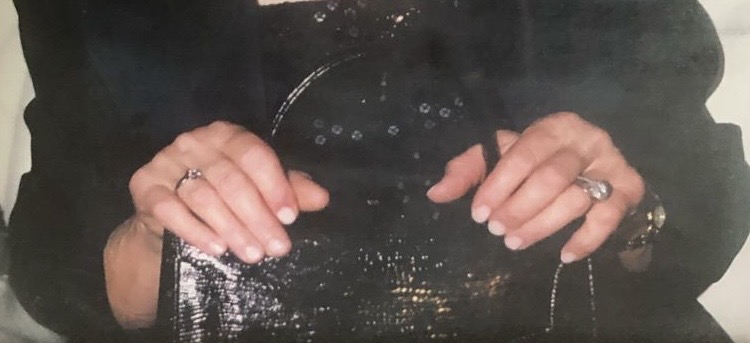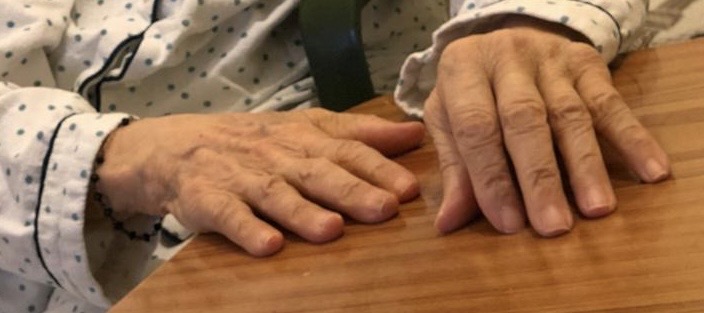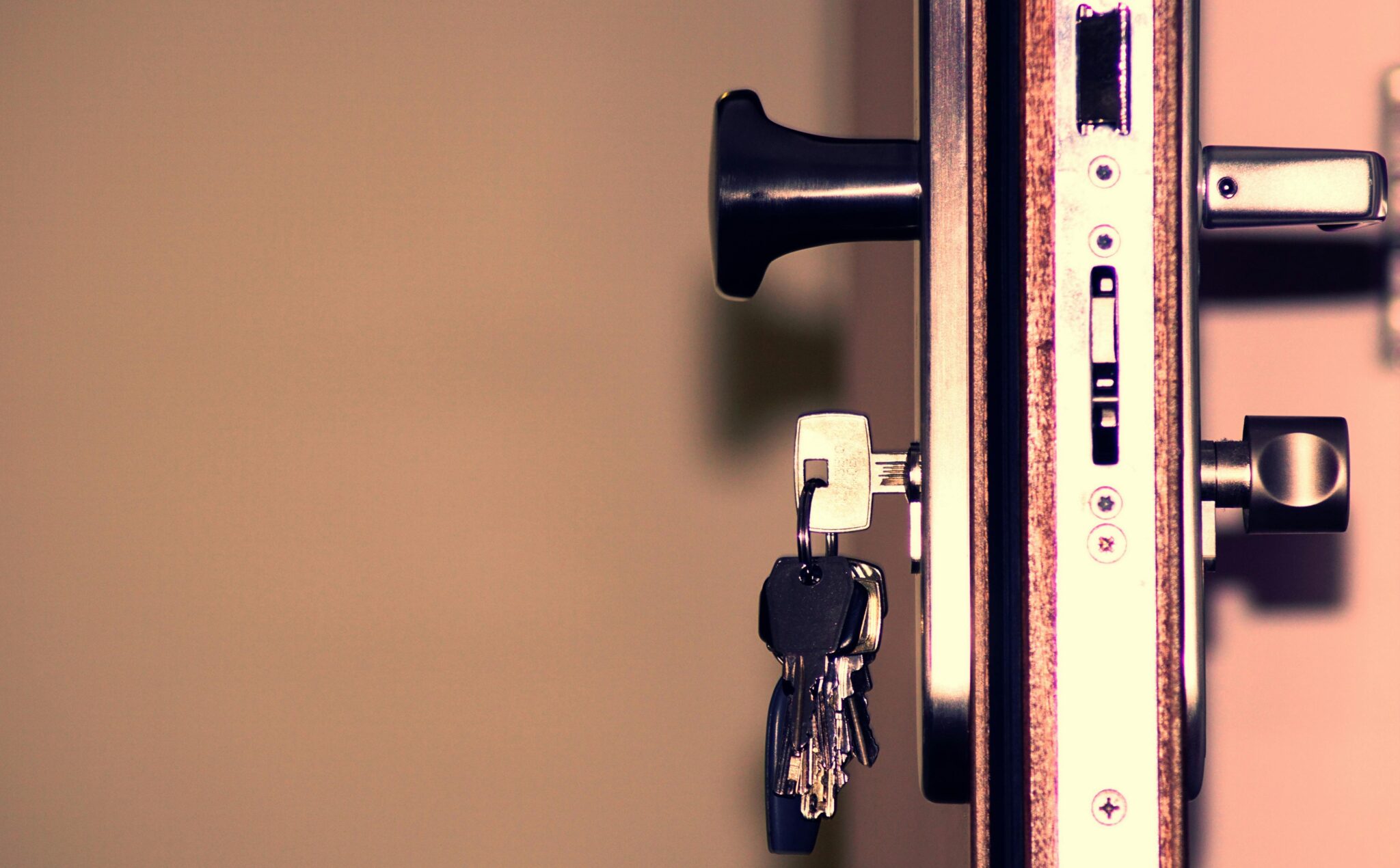There is a tendency amongst Arabic speakers to refer to cancer as “that disease” or the “wicked disease.” Yet, we are able to refer to Alzheimer’s Disease without attaching the label of “wicked” or “sinister”, even though it is that and more.
A Facebook post by director Paul Schrader put it perfectly when he said, “Alzheimer’s is loss without closure.” Everything is a synecdoche, a small part representing the whole, which is ruthlessly lost.
When everyone at school would tell stories about going to their grandparents’ houses, their memories seemed clear, joyful, and complete. I quickly realised that I would not be able to experience that same closure. Not only was I living in a different country, but I only got to know my grandparents when they were dependent on others for care.
My Teta battled with Alzheimer’s until 2019. I don’t remember when her experience with Alzheimer’s began, but I only remember my Teta post-Alzheimer’s.
When we would travel to Lebanon, one person had to stay at home with my grandma while everyone went out. I (regrettably) would complain about this, because it always meant someone was missing out on the fun. However, sometimes I would take on that role, and as a result, learnt so much about the fine art of caregiving.
I remember hand-feeding my grandma this chocolate biscuit called Choco Prince dipped into labneh. I remember watching The Princess Switch (2018) and my Teta getting so excited when there were two Vanessa Hudgens on screen (me, too!). 2018 would be the final year I would see my grandmother in the flesh.
I remember feeling miserable when I saw my Mother and her siblings get emotional when my Teta didn’t know who they were. I remember not being repulsed by dentures because the human body is beautiful, both in its completeness and its missing pieces.
My Teta was always beautiful until her last moment. Without exaggeration, she could pull off black, brown, blonde, grey and white hair. She served the pyjamas look better than any runway model. Her smile, punctuated by a little giggle, would convince your face muscles to do the same.
Caregiving isn’t necessarily fun, but it is the purest form of service anyone could provide. A carer is not only someone who is paid to feed someone, clean for them, clean them, or accompany them. A carer is more than often a volunteer. They sacrifice their needs and wants, personhood and career, and most importantly, their body to take care of a loved one.
It is also a shared burden, shifting amongst members of the family; when one cannot, the other takes over. Yet there is always one person or people who tend to occupy that role the most — women. One cannot ignore the gendered nature of caregiving, reproduced in the form of ‘the motherly instinct’ and the ideal worker model which deems men as the primary breadwinners.
As such, my two aunties came to occupy both roles. One shouldered the caregiving duties with the other working hard to offer up her income for expenses like medication, specialists, physiotherapy, and a walker.
You can witness someone’s true character when they take care of someone. It is too easy to become frustrated, exhausted and scared. “Have you seen my keys?” became a common question, where everyone would go hunting for my Teta’s keys, only to find them buried amongst the same set of sheets.
But my family was strong and capable, not faltering in the most life-threatening of moments. I would often sit down with my aunty who would organise the medications for the following week. She would be very precise, careful not to pair incompatible medications, and ignore the calls to hurry up. It was fascinating and technical, but also a burdensome responsibility.
To supplement my nascent caregiving experience, I would read up as much as I could about Alzheimer’s. According to the Alzheimer’s Association, caregivers for Alzheimer’s patients experience twice the “devastating toll” compared to caregivers for non-Alzheimer’s patients.
It was also estimated that “of the total lifetime cost of caring for someone …70% is borne by families” including out-of-pocket health expenses as well as unpaid care. In 2022 alone, unpaid caregivers provided 18 billion hours of care, equivalent to $339.5 billion.
This research later manifested in a high school science assignment in which I wrote a letter from the perspective of someone contending with Alzheimer’s, using strikethroughs, incorrect spelling, grammar and punctuation, ellipses and incomplete sentences to visually depict this.
“I feel as if I am not in control of my live life anymore. I have sensed the limitations of not being able to do the simplest things like pouring a cup of water, finding the kitchen or putting together a full sentence. My independence that I once had is lost, and I require help most of the. My family has noticed changes in my personality… I have become more aggressive…I have heard that I could go through depression and anxiety. I haven’t reached that point yet, but I know that I consistently confidently constantly want attention and people around me. I don’t want to feel alone.”
Source: My (cringe) Year 9 Science Assignment
My simplified understanding at the time was that patients lost their memory due to disruption of the function of neurons and synapses in the brain.
I came to observe something slightly different. Whenever she recounted stories from her youth, the memories were so clear, so picturesque, so real. My Teta did remember certain things, could still express herself, but somewhere along the way it became lost in communication. Now, I would describe it as a state of regression, back into the child self. That same inner child we all are so desperate to get back once we reach adulthood.
When I watched Still Alice (2014), a film about early-onset Alzheimer’s, I asked myself if I would do a genetic test that could potentially indicate a future where I would have Alzheimer’s. The answer is no. I don’t want to spend my life waiting for a condition that cannot be stopped, cured or slowed down.
Upon moving into a new home, my mother kept leaving her keys in the mailbox. It became a recurring event for our neighbours to knock on our door to hand them back. I would laugh it off, but for a while, I became hypervigilant. Thankfully, this was only because of stress.
I asked several family members about their personal encounter with the disease. My cousin, who has a medical background, did not want to delve into the scientific aspect. Rather, she spoke to how Alzheimer’s changes your personality, where “you become a different person”, but unlike someone reinventing themself, “there’s no going back.”
Because of this, you have to contend with the fact that “you know someone and they no longer know you.” She noted that, on the flip side, the patient can become a “blank canvas”, oblivious like an innocent baby. They can become wisecracking but you cannot hold them accountable for their actions because they have no bad intentions.They are also fragile, making it “difficult to move them away from their entourage or atmosphere”, or they will lose their minds.
My aunty revealed that an Alzheimer’s patient would be “living in the real world” and the next minute in “their own world.” She noted that for them, “a tissue could seem like a piece of bread” and they could be speaking to you not knowing who you are.
“You learn to follow what they say” — even if it is incoherent — to “make them feel like you understand.”
She also lamented the fact that the disease renders you powerless; “you could feel like a god one moment, and the next you feel like nothing, not even a human being.” It is a “sad disease”, where you can only compare a person “before and after.”
My Teta passed away in 2019, just before the so-called October Revolution and collapse of the Lebanese currency, the lira. Before COVID-19. Before the Beirut port explosion.
While what I will say next is a difficult truth to admit, however, my family were in unison when we agreed that she was fortunate to leave this life before having to live in a world deteriorating at a faster pace than her.







